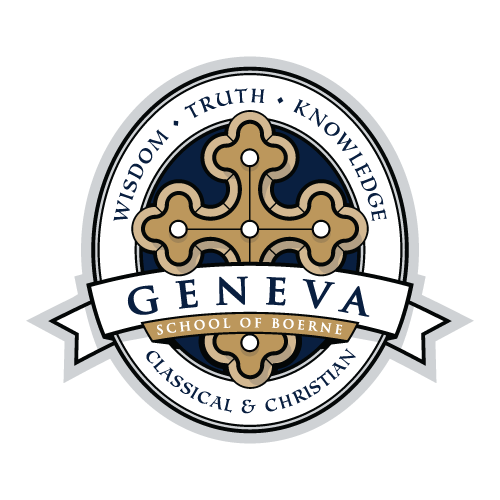At Geneva School, we adhere to classical methodology. A classical and Christian education is essentially a liberal arts education that strives to meet the ancient Roman ideal of equipping men and women to function as free men and women in the service of God. The Bible commands all Christians to worship God with our minds and to be good stewards of the talents and abilities with which He has created us. Accordingly, we focus on providing an education that is varied, rich and challenging to the advanced student while still accessible to the average student.
Academic Calendar
TRIVIUM
Classical educational methodology is based upon the trivium (Latin for “the place where three roads meet”) which was first articulated in the early middle ages and is carefully tailored to the predict- able developmental stages of the student. Grammar is the first stage of the trivium.
GRAMMAR
The Grammar School, serving students in kindergarten through fifth grade, focuses on the study of the fundamental elements of each subject area in order to build a framework for future knowledge. Phonics, basic math facts, chronological historical study, fundamental writing skills, increasing reading mastery and hands-on science exploration are emphasized and instruction capitalizes on the natural curiosity of the elementary student. Latin, the foundational language for the grammar and vocabulary of all Romance languages, is taught beginning in third grade.
Grammar School Handbook 2017-2018
LOGIC
The Logic School, serving students in sixth through eighth grades, is the second stage of the trivium, focusing on helping students question, challenge and test what they are learning. Accordingly, classes are discussion based with an emphasis on recognizing causes and effects. Students continue to study the great works and events of Western Civilization. In the sixth grade, students are introduced to formal logic. In seventh grade, students continue with formal logic in preparation for studying debate starting in eighth grade. Instruction is deliberately structured to encourage the development of critical and abstract thinking skills.
Logic School Handbook 2017-2018
RHETORIC
The Rhetoric School, serving students in ninth through twelfth grades, builds upon the Grammar School foundation of fundamental skills and facts and the Logic School development of critical thinking skills. With these basic knowledge-building skills, stu- dents are taught logic and advanced rhetoric in order to clearly, eloquently, respectfully, and per- suasively communicate their thoughts both orally and in writ- ing. Students study a modern Romance language or continue with Latin; mathematics through calculus; all of the foundational sciences including biology, chemistry and physics (offered as AP courses); history, government, fine arts; and the Western Canon engaged from a biblical worldview. In all three stages of the trivium, students study works that have withstood the test of time. Subjects are integrated across disciplines and students study complete literary works instead of textbooks comprised of literary excerpts. Our goal is to develop in our students a life-long love of learning and the mental habits necessary to develop mature, logical, and biblical thinking.
